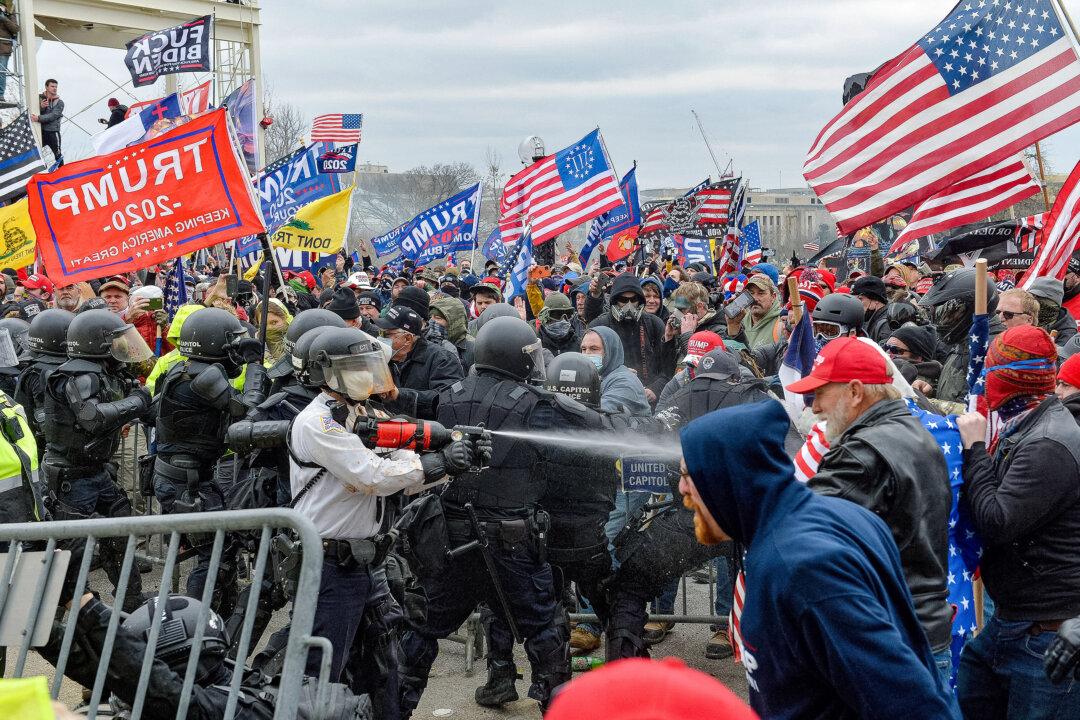The number of people arrested for alleged Jan. 6 crimes at the U.S. Capitol is nearing 1,400 as the rate of arrests showed a sharp increase in the first quarter compared to 2023 and 2022, a report shows.
The U.S. Department of Justice reported that as of the close of business on April 5, 1,387 people have been arrested since the breach and violence at the Capitol on Jan. 6, 2021.





